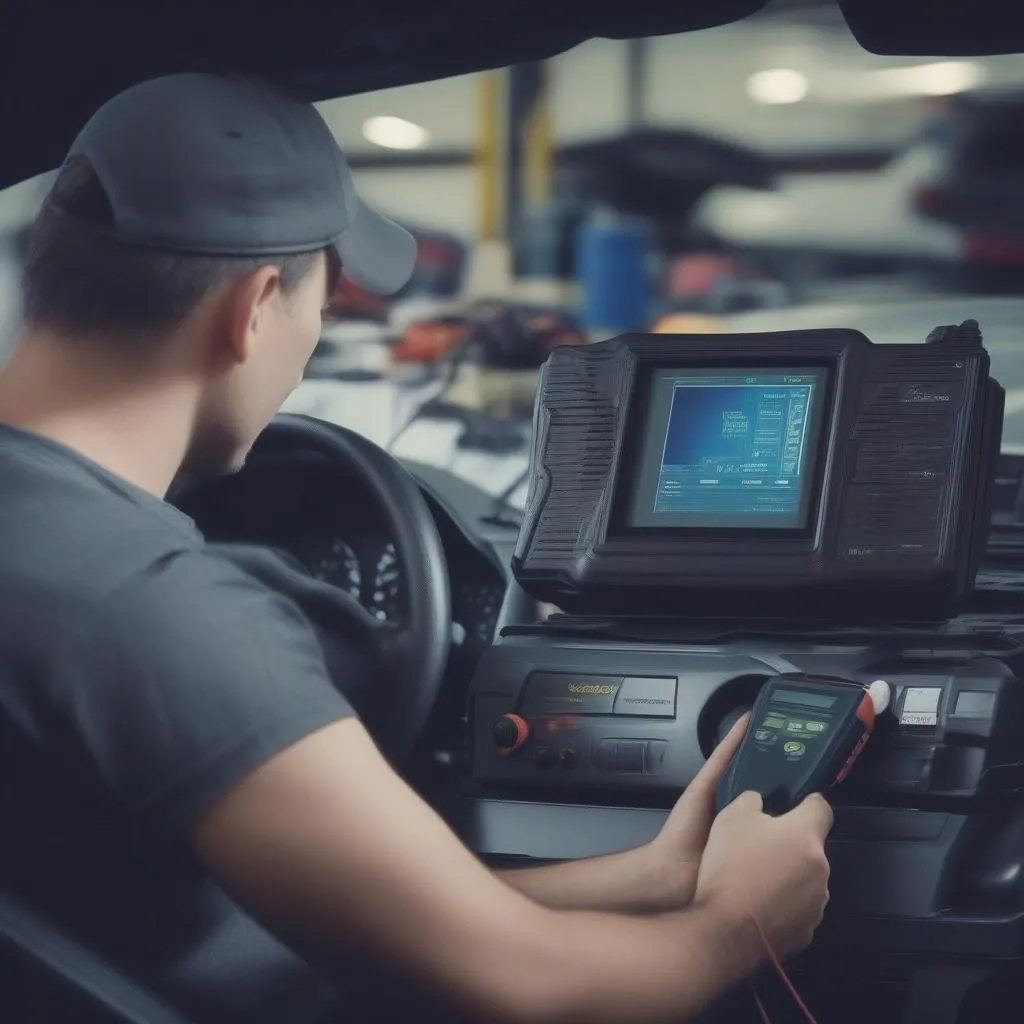Ever found yourself staring at a dashboard warning light, scratching your head and wondering what’s wrong with your car? You’re not alone. Car problems can be frustrating, but thanks to electronic testers, diagnosing and fixing issues has become much easier.
What Are Electronic Testers and Why Are They Important?
Imagine you’re a doctor trying to diagnose a patient without any tools. Pretty challenging, right? Electronic testers for cars are like the stethoscope and X-ray machine of the automotive world. These devices help mechanics and even DIY enthusiasts identify the root cause of problems in a car’s electrical system.
Understanding the Importance from Different Perspectives:
- Mechanic’s Perspective: Electronic testers are invaluable for a mechanic. They allow for a precise diagnosis of problems, eliminating guesswork and saving valuable time.
- Technical Perspective: Electronic testers are designed to interact with a car’s computer systems, providing access to diagnostic codes, sensor readings, and even real-time data streams. This information is crucial for troubleshooting.
- Economic Perspective: By pinpointing the issue quickly, electronic testers can save money in the long run. A misdiagnosis can lead to unnecessary repairs, costing you more than a proper diagnostic tool.
The Evolution of Electronic Testers: From Simple to Sophisticated
Electronic testers have come a long way since the early days of simple voltmeters. Today, we have sophisticated devices that offer a wide range of diagnostic capabilities.
Types of Electronic Testers:
- Multimeters: These are versatile tools that can measure voltage, current, resistance, and continuity.
- Scanners: Scanners are specialized devices that communicate with a car’s computer system to retrieve diagnostic codes and data. They can also perform various functions like clearing codes, calibrating sensors, and reprogramming modules.
- Oscilloscope: These are advanced tools that measure electrical signals over time, helping mechanics understand complex electrical behaviors.
Decoding the World of Electronic Testers: Key Features and Functionality
To understand the capabilities of different electronic testers, let’s delve into some key features:
Essential Features:
- Compatibility: Some testers are designed for specific car makes and models, while others are more universal.
- Data Access: The ability to access diagnostic codes, live data streams, and other relevant information is critical.
- User Interface: A user-friendly interface is essential for ease of use, especially for mechanics who might be working with unfamiliar vehicles.
Navigating the World of Electronic Testers: Frequently Asked Questions
1. What’s the Difference Between a Scanner and a Multimeter?
A multimeter is a basic tool for measuring electrical parameters, while a scanner is specifically designed to communicate with a car’s computer system. Think of a multimeter as a general practitioner, while a scanner is a specialist in automotive diagnostics.
2. Can I Use an Electronic Tester to Fix My Car Myself?
While some basic electronic testers are user-friendly, more complex tools require specific knowledge and training. You might need to consult a mechanic for more advanced troubleshooting.
3. Are All Electronic Testers Compatible with All Cars?
Not all electronic testers are universal. Some are designed for specific car brands, like German manufacturers like BMW, Audi, or Mercedes-Benz, while others cater to American and Japanese vehicles.
4. What Features Should I Look for in an Electronic Tester?
Consider factors like compatibility, data access, user interface, and the specific needs of your work. Remember, a good electronic tester is an investment in your automotive repair expertise.
Choosing the Right Electronic Tester: A Guide to Making the Best Choice
With various types of electronic testers available, selecting the right one for your needs can feel overwhelming. Here’s a guide to help you make an informed decision:
- Define Your Needs: Consider the type of repairs you typically undertake and the types of vehicles you work with.
- Budget: Electronic testers come in a wide range of prices, from basic multimeters to advanced diagnostic systems.
- Research and Reviews: Read reviews from other mechanics and professionals before making a purchase.
Elevate Your Automotive Expertise: Unlocking the Power of Electronic Testers
By leveraging the power of electronic testers, you can unlock a world of possibilities for diagnosing and fixing automotive electrical issues. Whether you’re a seasoned mechanic or a DIY enthusiast, these tools empower you to understand your car better and tackle those tricky problems with confidence.
Embrace the Power of Diagnostics: The Future of Automotive Repair
As technology continues to advance, electronic testers will become even more powerful and sophisticated. They are an essential tool for any modern mechanic, enabling them to stay ahead of the curve and deliver top-notch service to their customers.
For more insights into automotive diagnostics and electronic testers, explore our other resources on Diag XCar.
Have more questions about electronic testers or need help with diagnostics? We’re here to assist you! Contact us via Whatsapp: +84767531508. Our team of automotive experts is available 24/7 to provide support and guidance.
Do you have any other questions about electronic testers or automotive diagnostics? Share your thoughts in the comments section below. We’d love to hear from you!



